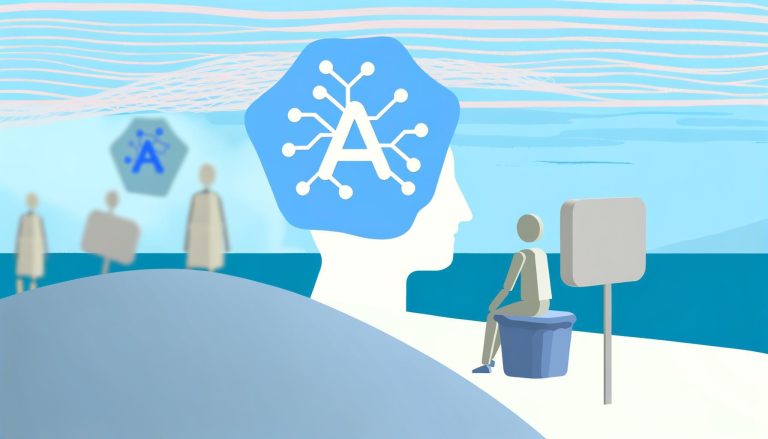Eco-anxiety is becoming increasingly prevalent as the climate crisis accelerates. This psychological phenomenon involves feelings of worry, fear, and helplessness regarding environmental changes and their future implications. Although concerns about our planet’s health are valid, eco-anxiety can be debilitating if not managed effectively. Fortunately, emerging AI strategies offer powerful tools to mitigate environmental stress and provide support to those affected. This article explores how AI can help manage eco-anxiety, offering practical tips and highlighting the benefits these technologies bring to our emotional well-being.
Understanding Eco-Anxiety
What is Eco-Anxiety?
Eco-anxiety encompasses the chronic concern and emotional distress about the ongoing and future environmental decline. It’s a response to the overwhelming information on climate change, pollution, and natural disasters, causing individuals to feel anxious and powerless.
Why is Eco-Anxiety Increasing?
Several factors contribute to the rise in eco-anxiety, including:
- Continuous media coverage of environmental issues
- Increased awareness of the consequences of climate change
- Personal experiences with climate-related events like flooding or wildfires
- Social and cultural emphasis on environmental responsibility
How AI Strategies Can Help Manage Eco-Anxiety
Personalized Support through AI-Powered Apps
AI-driven mental health apps provide tailored support for individuals experiencing eco-anxiety. These apps use algorithms to analyze user data and offer personalized coping strategies. They can recommend mindfulness exercises, provide educational resources, or suggest community actions based on the user’s specific concerns.
Chatbots: Instant Emotional Support
AI chatbots offer immediate, around-the-clock emotional support. These virtual assistants are designed to recognize and respond to emotional cues, providing comforting dialogue and practical advice. Chatbots can help users process their feelings, reduce anxiety, and feel less isolated in their concerns.
Data-Driven Insights on Mental Health Trends
AI can analyze vast amounts of data to identify trends in mental health related to environmental concerns. By understanding patterns and triggers, AI systems can create more effective intervention strategies. For example, they can pinpoint when and where eco-anxiety spikes, enabling targeted support and awareness campaigns.
Environmental Impact Monitoring
AI technologies, such as satellite imaging and environmental sensors, provide real-time data on environmental changes. By keeping the public informed and transparent about these changes, AI can help individuals feel more in control and less anxious about the unknown.
Practical Tips for Managing Eco-Anxiety with AI
Integrating AI Tools into Daily Life
Regular use of AI mental health apps and chatbots can form a part of your daily self-care routine. Here are some actionable tips:
- Set Daily Check-Ins: Use AI-powered journaling apps to track your emotions and environmental concerns.
- Engage in Guided Mindfulness Practices: Allow AI apps to guide you through meditation or mindfulness exercises focused on reducing eco-anxiety.
- Stay Informed: Use AI platforms to receive accurate, real-time updates on environmental conditions without getting overwhelmed by misinformation.
- Join AI-Supported Communities: Engage in online communities that use AI to foster supportive networks and communal action.
Seeking Professional Advice Enhanced by AI
AI can complement traditional therapy. Therapists might use AI tools to track client progress or provide supplemental resources between sessions. If you’re seeing a therapist for eco-anxiety, ask them about integrating AI tools into your treatment plan for more holistic care.
Balancing Awareness with Action
AI tools can help you find actionable steps to mitigate environmental impact. Taking proactive measures helps transform anxiety into purposeful action, fostering a sense of empowerment. Practical steps include:
- Participating in Local Environmental Projects: Use AI apps to find and join local initiatives.
- Adopting Sustainable Habits: Allow AI to track and suggest more sustainable daily choices.
- Advocating for Policy Change: Engage with AI platforms that simplify reaching out to policymakers and advocating for systemic changes.
Benefits of AI in Managing Eco-Anxiety
Access to Real-Time Support
AI provides continuous, real-time support, which is especially beneficial during sudden spikes in anxiety. Unlike human counselors who are bound by schedules, AI chatbots and apps are available 24/7, ensuring immediate help whenever needed.
Personalization and Scalability
AI’s ability to personalize support means users get help tailored to their unique psychological profile and environmental concerns. Furthermore, AI is highly scalable, offering support to large numbers of people simultaneously without losing quality.
Educational Resources and Awareness
AI can curate educational content that simplifies complex environmental issues, making them more digestible. By promoting better understanding, AI helps reduce irrational fears and focuses attention on practical solutions.
Encouraging Community and Collective Action
AI fosters community engagement by connecting individuals with similar concerns and interests. It promotes collective action, allowing people to channel their anxiety into meaningful, communal efforts that drive positive change.
Conclusion
Eco-anxiety is a natural response to the growing environmental crisis, but it doesn’t have to paralyze us. AI strategies offer innovative solutions—from personalized apps and supportive chatbots to insightful data analytics and community-building platforms. By integrating these technologies into our lives, we can transform our anxiety into actionable steps, promoting both mental well-being and environmental sustainability.
Utilizing AI tools not only provides immediate emotional relief but also empowers individuals to engage proactively with environmental issues. Whether through personalized support, real-time information, or fostering community action, AI stands as a valuable ally in the fight against eco-anxiety.
Additionally, tools like the Zenora App can complement this approach by helping individuals track their moods and habits, set and achieve goals, and reflect on their progress. Such comprehensive tools ensure that users have all the resources they need to navigate and manage their eco-anxiety effectively.





